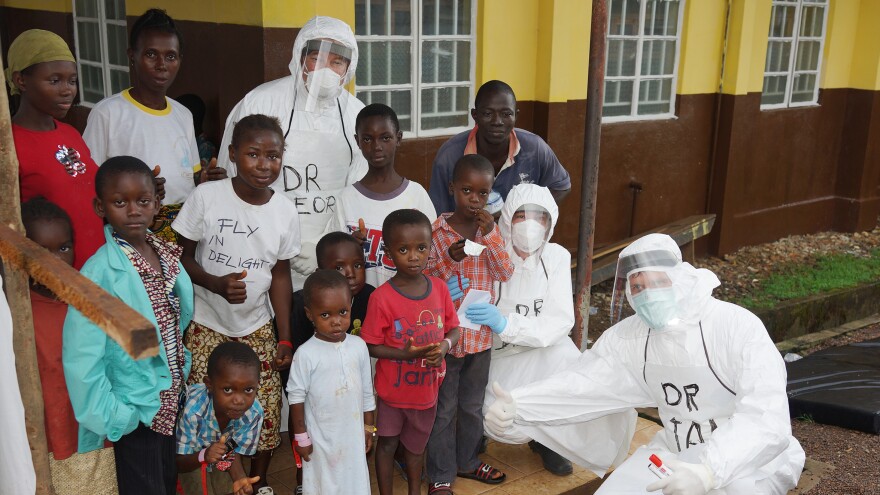
In 30 years of practicing medicine, Dr. George Risi has never had an experience as emotionally draining as his month in Sierra Leone.
Risi, 60, is an infectious disease specialist. He has a small practice and he trains staff at Providence St. Patrick Hospital in Missoula, Montana. The National Institutes of Health's Rocky Mountain Laboratories is right down the road in Hamilton. Researchers there work with hazardous infectious agents — including Ebola — and if one of them got infected, they'd go to St. Patrick.
His life in the mountains of western Montana, with his wife and high-school age son, is very comfortable. He enjoys skiing, hiking and fishing.
But he left that behind for a month this summer to volunteer at one of the busiest Ebola hospitals in Sierra Leone — Kenema General Hospital, the country's largest Ebola treatment center.
Risi had never actually seen a case of Ebola until he went to Sierra Leone. He estimates he treated more than 300 people. About 100 died.
"I've never seen that much concentrated death at any one time," he says. "You'd developed a relationship with these people. You knew them, and to walk in and see a previously healthy, vibrant person, sometimes in their 20s, or sometimes small children, and to find them dead the next morning, that was very, very difficult."
Risi says it was also difficult working 12 hour shifts in the hot, bulky protective gear that health workers wear to avoid becoming infected.
"There were times when you were exposed to a lot of blood, or a lot of diarrhea fluid. And if that were to happen, then you needed to walk away right away," he explains. "There was a chemical sprayer inside the ward so you could spray yourself right then, at that moment."
Risi tried hard to buoy the spirits of the local nurses he worked with. There were no local doctors at the hospital; all had died from Ebola.
Some Ebola survivors stepped in to help.
"There was one, who came in with her husband. Her husband died, but this woman, her name was Martha, and she not only survived, but she improved to the point that she was able to care for a lot of the small children," He says. "There are many kids who have been orphaned, but there was nobody to care for them. And so Martha in particular took on the task of feeding and bathing and just taking care of a half a dozen kids, and that was quite a remarkable thing."
Risi will also remember how grateful people in Sierra Leone were for outside help.
"I can't tell you how many times people just expressed their gratitude. They would see us even in the street, because it was pretty obvious we weren't locals, and people would stop us and they would just say, 'Thank you very much for being here.'"
Risi has since gone to Cuba to train health workers who are now at the hospital in Kenema. Back in Missoula, he's helping Providence St. Patrick Hospital prepare in case it's asked to treat an Ebola patient.
Copyright 2020 Montana Public Radio. To see more, visit Montana Public Radio. 9(MDAyNDY5ODMwMDEyMjg3NjMzMTE1ZjE2MA001))


